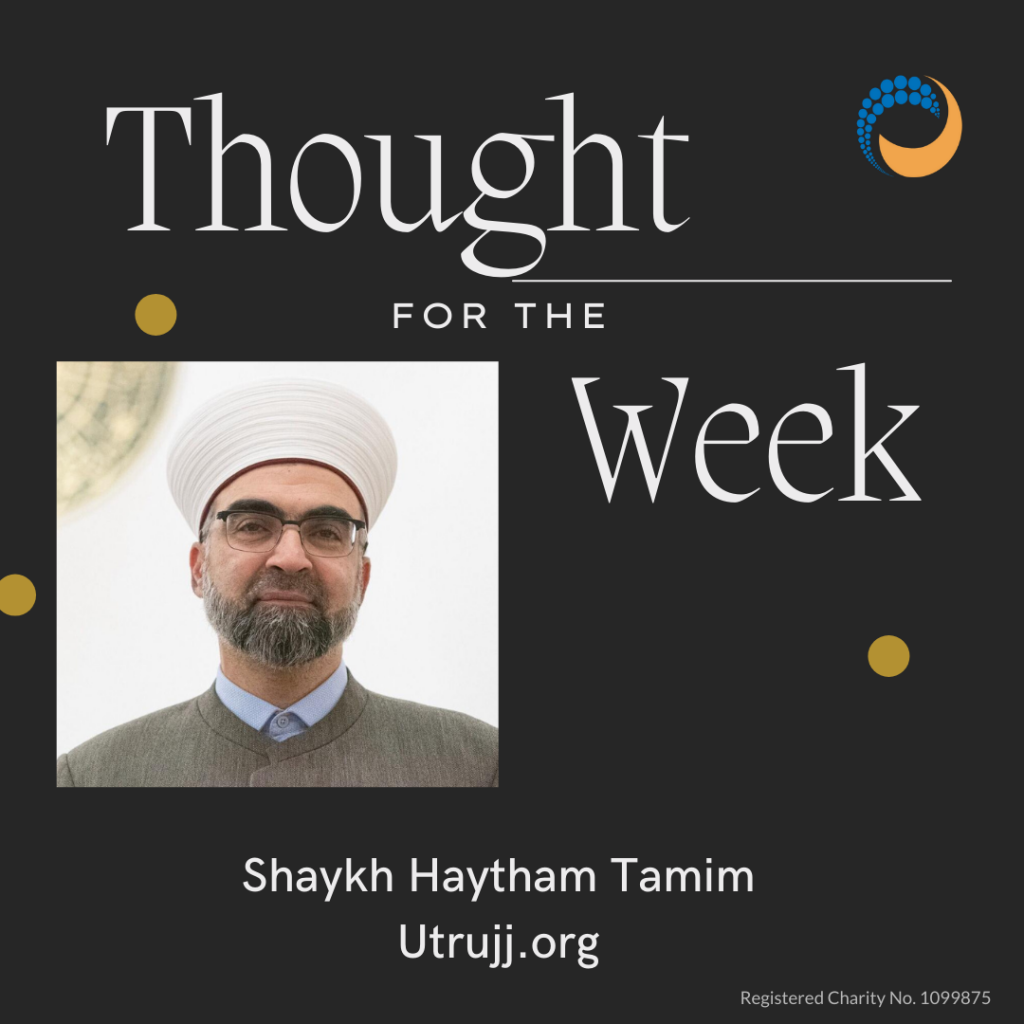What is the best source of income?

The Prophet Muhammad (peace be on him) was once asked what type of earning is the best.
عَنْ رِفَاعَةَ بْنِ رَافِعٍ - رضى الله عنه - أَنَّ اَلنَّبِيَّ - صلى الله عليه وسلم -سُئِلَ: أَيُّ اَلْكَسْبِ أَطْيَبُ؟ قَالَ: { عَمَلُ اَلرَّجُلِ بِيَدِهِ, وَكُلُّ بَيْعٍ مَبْرُورٍ } رَوَاهُ اَلْبَزَّارُ، وَصَحَّحَهُ اَلْحَاكِمُ.
Rifa’a bin Rafi’ (may Allah be pleased with him narrated that the Prophet (peace be on him) was asked, ‘What type of earning is best?’ He replied, “A man’s work with his hand and every honest transaction (which is free from cheating or deception).” [al-Bazzar]
Have one personality, not two masks
There are several points we can take even from this short narration. First, the question itself is a reflection of what was going on in the Companions’ minds. The person asking the question was looking for a shortcut to pleasing Allah. They didn’t just want to please Him during their salah, but also in their daily work. We don’t have two masks, one for the mosque and one for the market. We should have one personality: a Muslim personality. Wherever you go, it goes with you.
The best work is what you do with your own hands
This companion wanted to know how to please Allah in his work every day, because it’s a form of ‘ibada to actively earn in a halal way. The Prophet (peace be on him) mentioned two conditions. Number one: the best rizq is the work you do with your own hands. This doesn’t mean literally working with your hands, but it means you should be independent. Don’t be lazy and rely on handouts. He was encouraging us to be active and create opportunities; find a niche market to promote something good. All the prophets worked with their own hands: in another narration, the Prophet (peace be on him) mentioned Prophet Dawud especially.
عَن الْمِقْدَاد بْنِ مَعْدِي كَرِبَ قَالَ: قَالَ رَسُولُ اللَّهِ صَلَّى اللَّهُ عَلَيْهِ وَسَلَّمَ: «مَا أَكَلَ أَحَدٌ طَعَامًا قَطُّ خَيْرًا مِنْ أَنْ يَأْكُلَ مِنْ عَمَلِ يَدَيْهِ وَإِنَّ نَبِيَّ اللَّهِ دَاوُدَ عَلَيْهِ السَّلَامُ كَانَ يَأْكُلُ مِنْ عمل يَدَيْهِ» . رَوَاهُ البُخَارِيّ
Al-Miqdam bin Ma’dikarib (may Allah be pleased with him) reported Allah’s Messenger (peace be upon him) as saying,
“No one has ever eaten better food than what he eats as a result of the labour of his hands. God’s prophet David used to eat from what he had worked for with his hands.” [Bukhari]
The best form of income
Scholars have different opinions on what is the best source of income, based on different narrations of the Prophet (peace be on him). For example, the Shafi’i school considers trade to be the best, while others say manufacturing is better. The scholar al-Mawardi says that agriculture is best, because it involves the most tawakkul. You plant seeds, and don’t know whether you’ll have good weather and good conditions or not: you have to rely on Allah to make your harvest successful. Al-Nawawi added that agriculture also brings benefits to people, land, animals, and birds – though of course this only applies to natural techniques, not the industrial farming we have today!
Honest transactions
The second part of the hadith talks about honest transactions. This means transactions which are free from cheating. Do not conceal any flaws, or you will be eating haram. It is better to have a limited amount of halal rizq that has barakah in it, than a lot of haram earnings with no barakah. This is very serious, and it may also lead to one’s duas being rejected.
Abu Hurayrah (may Allah be pleased with him) said that the Messenger of Allah (peace be upon him) said,
“O people! Allah is Pure and, therefore, accepts only that which is pure. Allah has commanded the believers as He has commanded His Messengers by saying: ‘O Messengers! Eat of the good things, and do good deeds.’ (23:51) And He said: ‘O you who believe (in the Oneness of Allah – Islamic Monotheism)! Eat of the lawful things that We have provided you…”‘ (2:172). Then he (ﷺ) made a mention of the person who travels for a long period of time, his hair are dishevelled and covered with dust. He lifts his hand towards the sky and thus makes the supplication: ‘My Rabb! My Rabb!’ But his food is unlawful, his drink is unlawful, his clothes are unlawful and his nourishment is unlawful, how can, then his supplication be accepted?” [Muslim]
Abu Hurayrah (may Allah be pleased with him) narrated that Allah’s Messenger (peace be upon him) narrated:
وعن أبي هريرة رضي الله عنه أن رسول الله صلى الله عليه وسلم قال: ” من حمل علينا السلاح، فليس منا، ومن غشنا، فليس منا” ((رواه مسلم)).
“No doubt, it is better for any one of you to cut a bundle of wood and carry it over his back rather than to ask someone who may or may not give him.” [Bukhari]
Abu Hurayrah (may Allah be pleased with him) narrated that the Messenger of Allah (peace be upon him) said,
“He who takes up arms against us is none of us; and he who cheats us is none of us. [Muslim]
In another hadith, it is mentioned that the buyer and seller have the option to nullify a transaction until they part from each other. And if they tell the truth and do not conceal anything, Allah will put barakah in their dealings. Hakim bin Hizam reported Allah’s Messenger (peace be upon him) as saying,
“Both parties in a business transaction have the right to annul it so long as they have not separated; and if they tell the truth and make everything clear they will be blessed in their transaction, but if they conceal anything and lie the blessing on their transaction will be eliminated.” [Bukhari and Muslim]
Clarity in business deals and financial transcations
“Al-Bay’ Al-Mabrur” (the approved sale) is one that is built upon truthfulness and clarity. Truthfulness in describing the product and clarity in pointing out any flaws. For example, if someone tells you, “This is good,” and it is actually defective, they should acknowledge it, not conceal it. Instead, they should make it clear. As stated in the hadith, “If they are truthful and clarify [their dealings], their endeavor will be blessed.”
Hence, an approved sale is one based on truthfulness, clarity, and compliance with Islamic law (Shariah). If it goes against Islamic principles, even if it is based on truthfulness and clarity, it is not considered “Al-Bay’ Al-Mabrur.”
We need to be earning in a halal way, and seeking the shortcuts to please Allah in every part of our daily lives. Let’s stay away from anything that involves cheating and dishonesty, and ask Allah to put barakah in our earning.
Parental guidance in career choices
When children are deciding on which subjects to take and which careers to pursue, parents should encourage their natural talent and allow them to pursue their interest as long as they are permissible and beneficial. Many parents have a tendency to push their children into careers that they think will be more lucrative or socially impressive, however, this is sometimes mismatched with a child’s natural inclinations. As an Ummah we need more than engineers and doctors – we need to have a wider representation across all sectors, including the arts and media and politics. Let’s nurture our children’s talents and guide them to halal career choices.
Shaykh Haytham Tamim 1st Sept 2023
Transcribed by Hana Khan
Should I Invest in Cryptocurrency
What Do I Need to Know about Tawbah
The Power of Du’a. Asking for the Impossible
- The truth is more powerful than lies
- Does a bride’s wali have to be Muslim?
- Is is permissible to lead a salah split over different rooms?
- Global IT outage. When systems go down…
- The concept of worship. What are ibadah and ihsan – and how do they lead to self development?

Recommended Posts

The truth is more powerful than lies
July 26, 2024

Global IT outage. When systems go down…
July 19, 2024

